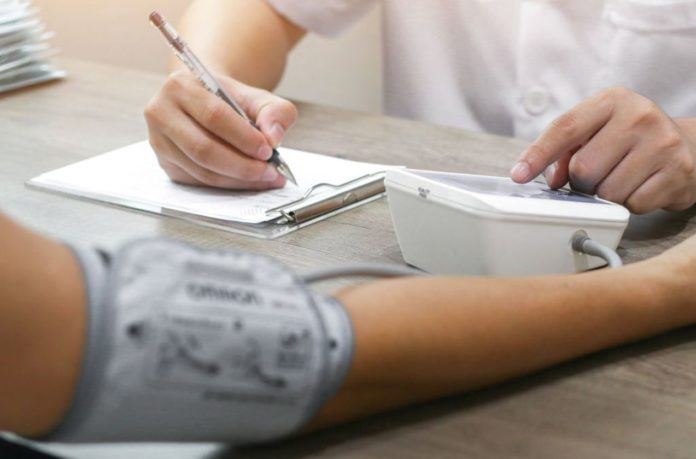It seems Scientists have discovered a new treatment option against intracranial aneurysm ruptures. A new study found that taking RAAS inhibitors, a class of blood pressure-lowering drugs, cut the risk of an aneurysm rupturing by 18%.
A new study published today in Hypertension looked at more than 3,000 people with high blood pressure and brain aneurysms. It found that taking RAAS inhibitors, a class of blood pressure-lowering drugs, cut the risk of an aneurysm bursting by 18%.
An aneurysm is a weakness or bulging in the arterial wall. An intracranial aneurysm occurs when this happens in a cerebral artery. When an intracranial aneurysm bursts, blood flows all over the brain and oxygen is cut off to the affected area, resulting in a hemorrhagic stroke, unconsciousness, and death. These strokes account for 3-5 percent of all strokes, however, they have a higher morbidity and fatality rate than other stroke types.
According to the National Institute of Neurological Disorders and Stroke, around 30,000 persons in the United States have intracranial aneurysms that rupture each year. Furthermore, in the United States, stroke is the largest cause of disability.
The renin-angiotensin-aldosterone system (RAAS) in the body contains hormones that regulate blood pressure regulation, and RAAS dysregulation can contribute to high blood pressure.
Two RAAS components have been linked to the development of cerebral aneurysms, and earlier research has suggested that RAAS dysregulation may potentially lead to aneurysm rupture. High blood pressure is commonly treated using RAAS inhibitors, which are drugs that prevent the effects of the RAAS.
“Approximately half of patients with intracranial aneurysms have high blood pressure, which can cause vascular inflammation and increase the risk of aneurysm rupture,” says Qinghai Huang, the study’s senior author.
“Given that one-third of patients with ruptured aneurysms die and another third remain dependent for daily life activities, there is a need to identify modifiable risk factors to prevent aneurysm rupture.”
This multi-center study looked at data collected from 20 medical centers across China between 2016 and 2021, both before and after aneurysm rupture, to see if there was a link between the use of RAAS inhibitors and other blood pressure medications like beta-blockers and diuretics and the risk of aneurysm rupture.
The study comprised almost 3,000 adults with high blood pressure and cerebral aneurysms. With an average age of 61, the study sample consisted of one-third men and two-thirds women. Blood pressure measurements taken three months before they were hospitalized for aneurysm were used to determine whether participants’ hypertension was controlled (normal blood pressure with the use of antihypertensive medications) or uncontrolled (high blood pressure, defined as 140/90 or above with the use of antihypertensive medications).
According to the study, 32 percent of those taking RAAS inhibitors had an intracranial aneurysm rupture, compared to 67 percent of those taking non-RAAS inhibitors.
“We were surprised to find that even among people with controlled hypertension, those who took RAAS inhibitors still had a significantly lower rupture risk than individuals who used non-RAAS inhibitors,” adds the author.
“Our study highlights that using the proper antihypertensive medications to achieve normalization of blood pressure may remarkably decrease the risk of a ruptured aneurysm.”
The research team estimates that based on these findings, “nearly 18% of ruptured aneurysms may be prevented if all patients with high blood pressure and intracranial aneurysms were prescribed with RAAS inhibitors” and it could also help clinicians to optimize treatment to help people with high blood pressure prevent aneurysm rupture.
The researchers calculated that the risk of aneurysm rupture was 1.8 times higher in women than in males and that the following characteristics enhanced the risk of aneurysm rupture:
- uncontrolled hypertension;
- exposure to second-hand smoke; and
- untreated Type 2 diabetes.
According to the authors of the study, “these findings confirm previous studies indicating that—in addition to blood pressure control—smoking cessation and aggressive treatment of Type 2 diabetes may also help reduce the risk of aneurysm rupture.
“However, more research is needed to understand how RAAS inhibitors are involved in the prevention of intracranial aneurysm rupture in adults with high blood pressure,” adds the study’s lead author.
The authors pointed out that the study was done in the past, that there were possible confounding factors, that hypertension was defined as a blood pressure of 140/90 instead of 130/80, that the exact value of each participant’s blood pressure was not recorded, and that the duration and dose of RAAS inhibitors were not written down in the database.
Image Credit: Getty
You were reading: Blood Pressure Drugs Found To Be Reducing Aneurysm Rupture Risk
